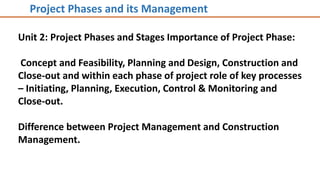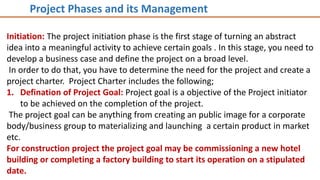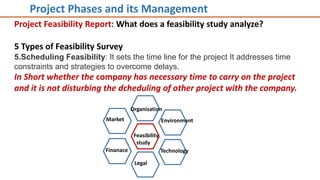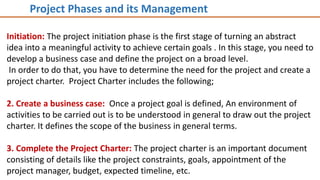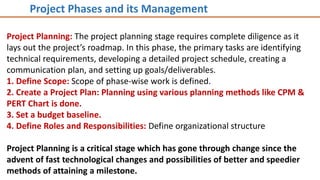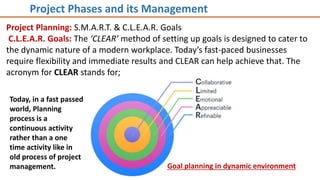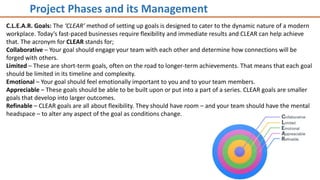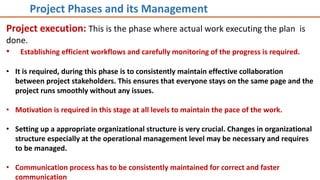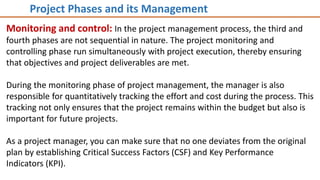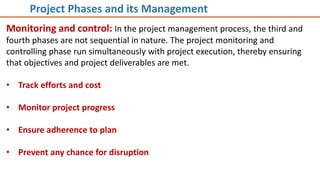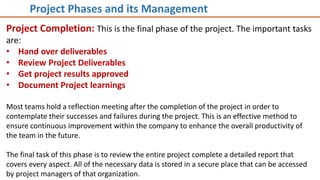The document discusses project phases and management. It describes the typical 5 phases of a project - initiation, planning, execution, monitoring and control, and closure. It provides details on each phase, including developing a project charter and business case in initiation, creating a project plan and defining roles in planning, executing the project in the execution phase, monitoring and controlling the project, and closing the project. It also discusses the importance of project feasibility studies and setting goals using SMART and CLEAR frameworks to help define goals that cater to dynamic project environments.
